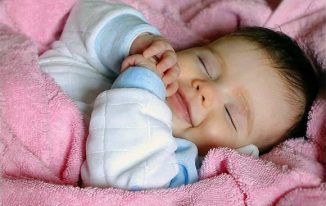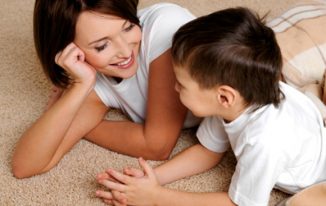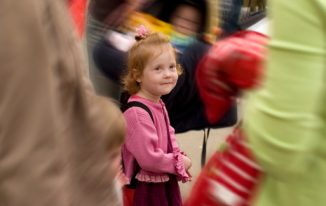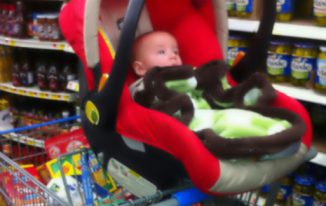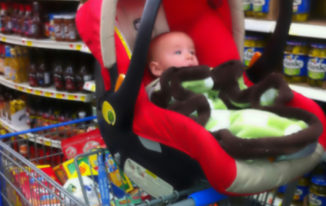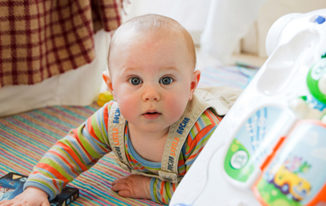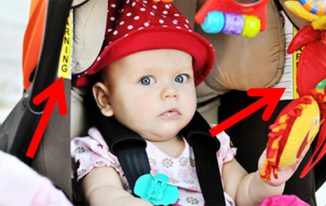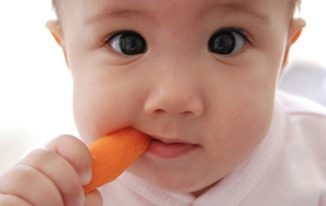Parents, please pay attention. In the interest of your child’s safety, there are certain common practices that you should be aware of which could potentially be harmful to your little one. Just because a lot of parents are still doing it around you does not make it is safe or right.
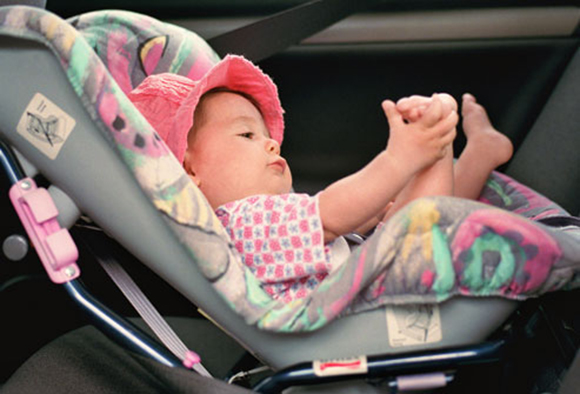
There is a good chance that you may be guilty of doing one of these things. I know I am. I’m just glad that nothing unfortunate happened to my child.
So to keep your child from having some unfortunate serious injuries or health problems, we thought that it was important to share this list of things that parents should not be doing to their child.
This list was put together just to inform parents who may not be aware that what they are doing may not be safe for their child. As one appreciative parent said:
I’m glad I came across your article. Now that I’m aware, I certainly would not be doing some of these and risking my child’s life. Thank you.
Sometimes, parents may also make bad decisions just to save time or because making the extra effort appears to be inconvenient. However, doing so may come at the expense of a child’s safety.
Go to the next page to see the list of 10 common yet unsafe things that parents should stop doing.
Below is the list of 10 common yet unsafe things that parents should stop doing:
10. Putting car seats on top of shopping carts.
Shopping carts are not made to hold an infant car seat safely. Car seat manufacturers warn against putting them on top of shopping carts. Source: mom.me
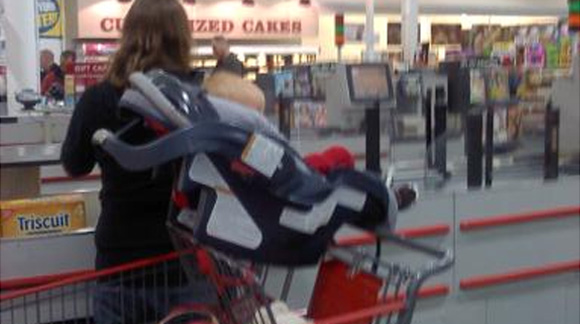
Surely, it’s convenient. However, is it safe? It definitely is NOT. The unfortunate reality is that accidents involving car seats on shopping carts really do happen.
“According to the Consumer Product Safety Commission (CPSC), shopping carts are the leading cause of head injuries in young children – surpassing injuries from high chairs, strollers, changing tables, baby gates and other equipment. The CPSC estimates that about 16,000 children under the age of five fall out of shopping carts each year and nearly 1,000 of those injuries involve falling infant carriers.” Source: GreenChildMagazine.com
Baby car seats are NOT designed to be secured on top of shopping carts.
Furthermore, shopping carts can tip over easily — and they’re more likely to if there’s a car seat mounted on them. See 6 Top Reasons “Car Seat On The Shopping Cart” Is A BAD Idea for details.
You would think that parents would take extra care to never leave their kids all alone, especially babies in the car. Unfortunately, in spite of numerous tragic stories that we hear in the news, parents still do this:
9. Leaving kids in the car.
We’ve all heard the tragic news stories of babies dying from heat because they were left in a hot car. But heat is not the only danger. No matter their age, children should not be left unattended in a vehicle. Source: mom.me
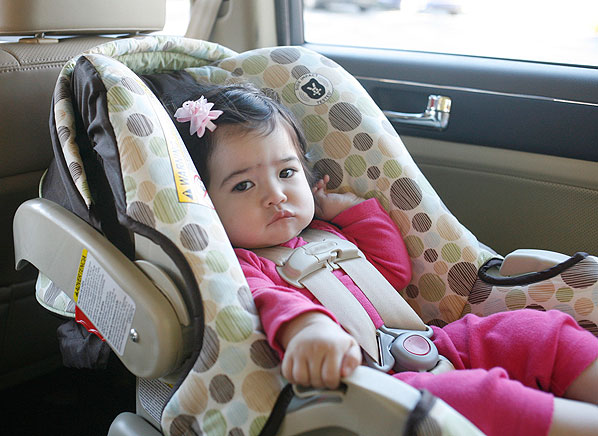
How could someone forget a child in a car? To forget a child in a hot car is preventable. Yet, every year, we always read or hear about heartbreaking and tragic stories of babies and toddlers who died as a result of their parents forgetting them in their cars.
In fact, heat stroke deaths of children forgotten in the car number to around 30 to 50 a year, or 38 a year on average, according to KidsAndCars.org, a nonprofit safety organization.
Certain over the counter drugs are not suppose to be given to babies.
However, some parents still drug their babies to sleep. If you want to make your baby fall asleep, try this instead.
8. Giving babies Benadryl in hopes of a better night’s sleep.
Benadryl isn’t meant to be given as a sedative. In fact, it can be dangerous. And sometimes, your child can have an adverse reaction to it. Source: mom.me
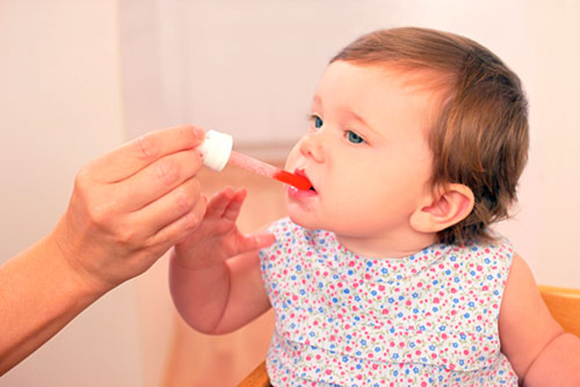
According to Pediatrics expert Dr. Vincent Iannelli:
“While it might seem like a quick and easy solution to potential problems you might have when flying with young kids, most pediatricians try to discourage parents from giving kids anything to sedate them on an airplane.”
Dr. Iannelli also added that:
“The benefits usually don’t outweigh the risks … The sedative effects of Benadryl may last a good 4 to 6 hours, which may be longer than your flight, and even after your child wakes up, he may be drowsy or groggy for several hours afterwards. So even if he sleeps on the flight, you might end up with a fussy and irritable child afterwards.”
You might love StarBucks, but starting kids on this is something you should not do. Believe it or not, getting kids “caffeinated” is an increasing trend these days, according to a study by the Boston Medical Center.
7. Giving young children coffee.
Children who consume caffeine can suffer from several negative side effects such as slowed heart rate, high blood pressure, difficulty concentrating, difficulty sleeping, and more. Source: mom.me
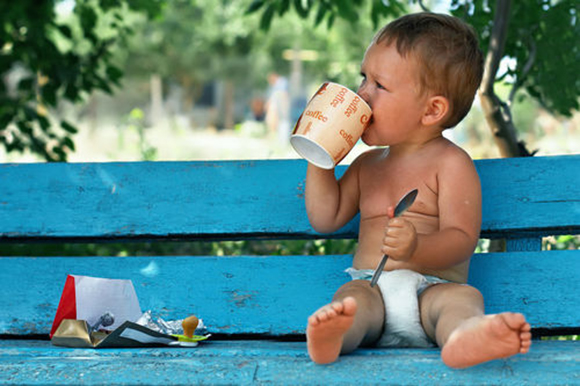
The study by the Boston Medical Center looked at 315 moms and toddlers in the Boston area. Researchers were surprised to find that many moms were giving their babies coffee.
Caffeine is a stimulant. Caffeine consumption in kids has been found to cause children to sleep less. As we know, sleep is important for a child’s development and growth, especially at such a very young age. Some other adverse effects of caffeine on kids are jitteriness, nervousness, increased heart rate, and increased blood pressure, among others.
Eventually, you will need to sleep train your kid. However, some parents think locking their kid’s door is the answer. However, this could potentially have some serious safety repercussions.
6. Locking kids in their room while sleep training.
DON’T. I can’t think of anything more dangerous than a kid not being able to get out of their bedroom. If there was a fire or some other emergency, children need to be able to open their bedroom doors. Source: mom.me
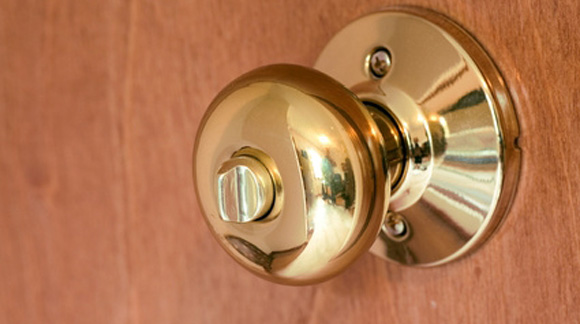
Instead of locking your child in, this mom suggests this instead:
“Locks don’t belong on a child’s door. They belong on the things children shouldn’t have access too. Medication should always be kept in a locked box and then stored out of reach (like above the refrigerator). Lock the outside doors. Lock the basement door. Lock the bathroom door. I once knew a family that had double baby gates (one stacked above the other) on their kitchen entrance … I’d consider a door alarm, but not locking a child in.”
Of course, you would like to keep your kids warm especially when the weather is cold. However, keep in mind that you should not do this next practice. Time and again, parents are guilty of this, especially when they are in a hurry getting in and out of their vehicles.
5. Letting kids wear puffy winter coats in the car.
When the harness isn’t snug and tight, next to the child, it puts them at risk for being ejected from the car seat during an accident. Source: mom.me
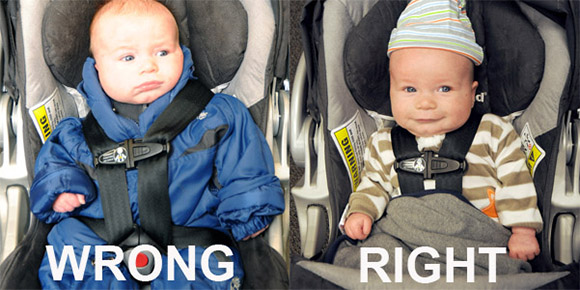
When your child has a puffy winter coat on, the car seat harness won’t be snug and tight. This therefore puts them at risk of being ejected from the car seat if an accident occurs. Some people might find this hard to believe. The truth of the matter is that it really can happen.
Still not convinced? Check out this video to see how dangerous this can be.
Going to the mall with your baby is a great way to unwind. However, make sure that you don’t do this next thing.
A lot of parents still ignore signs warning about the dangers of using strollers on escalators.
4. Putting the stroller on the escalator.
It’s just dangerous. Instead, fold your stroller up and carry it while you ride, or better yet, take an elevator. Source: mom.me
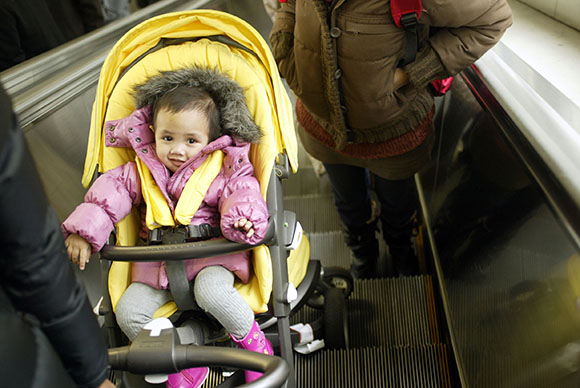
There are very real dangers to boarding strollers on escalators such as this story, where a small child fell from a stroller while on the escalator.
“A 2006 study on Pediatrics regarding escalator injuries found that there were “disproportionate amount of escalator related injuries in children who were younger than 5 years of age.” … The study found that 6% of injuries in this age group were from a stroller, usually from falling out of the stroller.” Source: PediatricsNow.com
Simply take the extra time to use the elevator with your stroller as opposed to the escalator.
Bouncers and car seats are not meant to be placed on these areas. Parents should not ignore the dangers of the common practice of …
3. Putting Bumbos, bouncers, and car seats on high surfaces.
These items do not belong on high surfaces. There have been too many accidents related to falls. Instead, keep them on the floor where they belong. Source: mom.me
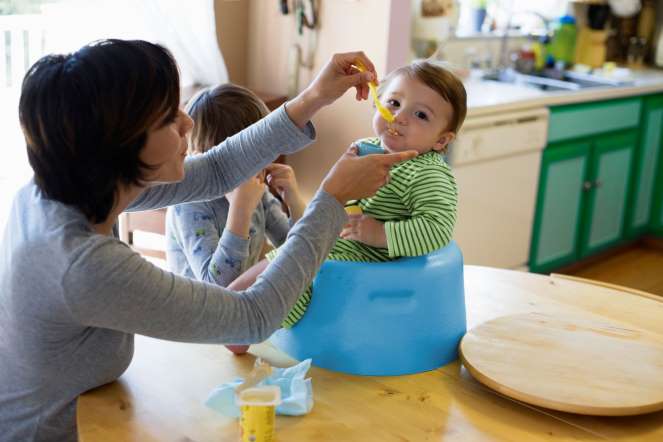
The Consumer Product Safety Commission (CPSC) reported at least 28 incidents of babies falling out of Bumbo seats with three of the cases resulting in skull fractures. CPSC Senior spokesperson Julie Vallese said:
“The reports of serious head injuries prompted the CPSC to announce a nationwide warning to consumers that have these — not to put these on elevated surfaces and be aware that children can climb out of them or they can tip over in these chairs.”
One of the more serious incidents involving a Bumbo seat was baby Dylan Lamm.
“Dylan had arched his back and tilted the Bumbo Seat, causing him to fall backwards and onto the kitchen floor. His skull cracked in two places. An emergency surgery saved Dylan’s life, leaving a long scar on his head.”
Buckling up a child in a car is important. Unfortunately some parents do not strictly adhere to such practice at home. A study found that about 24 children a day are treated in U.S. emergency rooms for high chair-related injuries.
2. Not buckling kiddos into strollers, high chairs, etc.
Even if it seems unnecessary, always buckle your child into these things. Every year, there are countless accidents because children are not properly buckled in. Source: mom.me
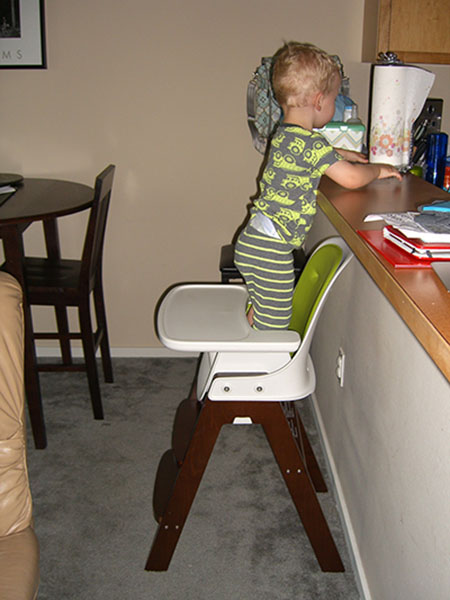
A study by researchers at the Center for Injury Research and Policy of The Research Institute at Nationwide Children’s Hospital examined U.S. Emergency Department data pertaining to treatment of children ages 3 years and younger and found that:
“On average, more than 9,400 children were treated each year for an injury associated with a high chair or booster seat, equaling one child every hour nationally. In addition, the annual number of injured children increased during the study period.” Source: NationwideChildrens.org
Lastly, here’s something that is quite surprising …
You will be surprised that some parents remain complacent or naive about their homes when it comes to safety. It is really important that you baby proof your home to keep your child safe as unintentional injury is one of the top killers of children in the U.S.
1. Not babyproofing.
Cover your outlets. Lock cabinets. Gate your stairs. Remove anything that could cause strangulation. Put medicines and cleaning supplies and other harmful substances far out of baby’s reach. Source: mom.me
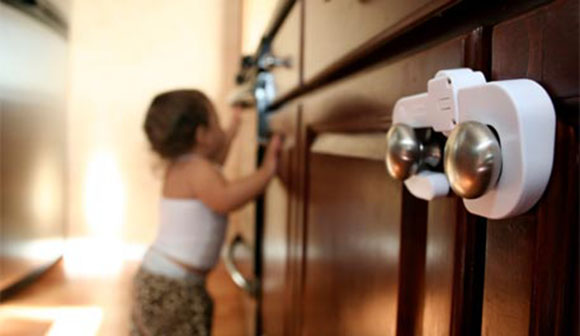
Believe it or not, your home can be one of the biggest threats to your child’s safety. Child safety experts agree that baby proofing your home gives your baby a safe environment to play and explore while preventing potential serious injuries.
“Experts say that children between the ages of 1 and 4 are more likely to be killed by fire, burns, drowning, choking, poisoning, or falls than by a stranger’s violence … About 2.3 million children are accidentally injured every year and more than 2,500 are killed, according to the U.S. Centers for Disease Control and Prevention.” Source: BabyCenter.com
Just don’t take baby proofing for granted. It should only take you several hours in total. By doing so, you’ll have peace of mind and a home that is safe for your baby.
To learn more details about this great list of safety reminders that Lacy Stroessner of mom.me put together, you can read the full article here.
Please share this article with family and friends to keep your precious babies and toddlers safe from harm.
So which of these things are you guilty of doing?

